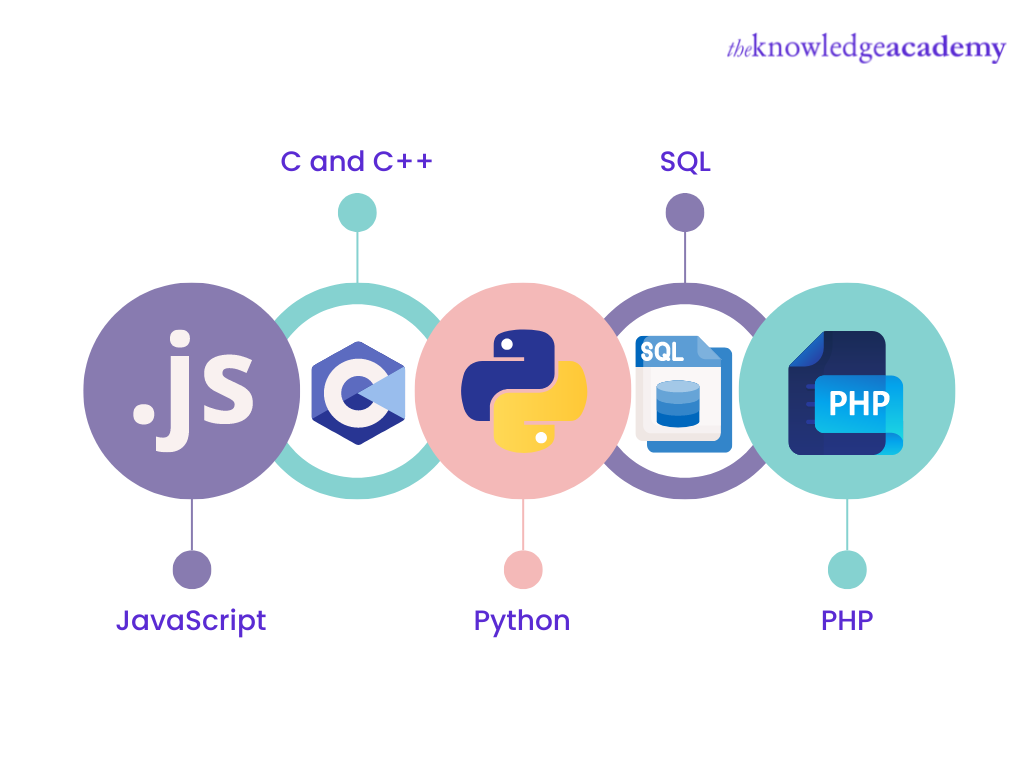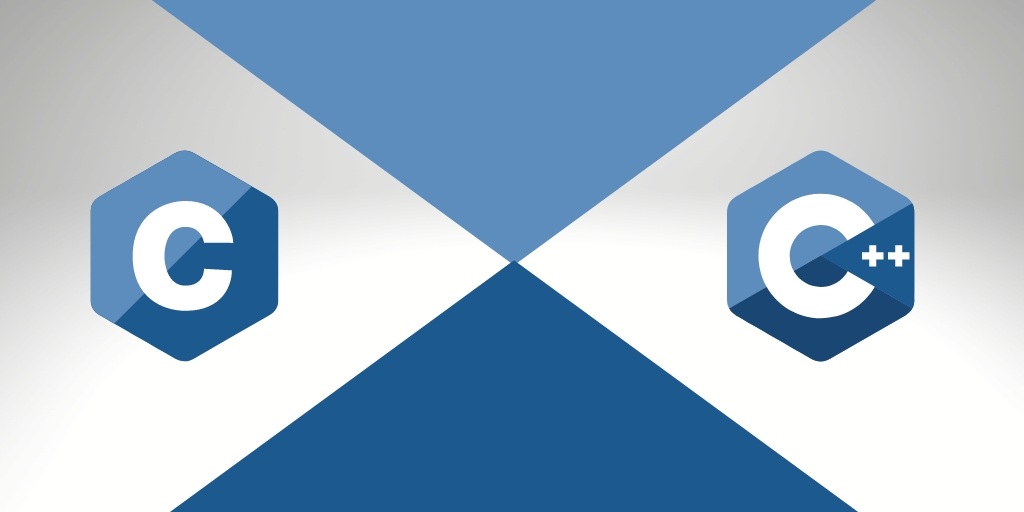We may not have the course you’re looking for. If you enquire or give us a call on +49 8000101090 and speak to our training experts, we may still be able to help with your training requirements.
Training Outcomes Within Your Budget!
We ensure quality, budget-alignment, and timely delivery by our expert instructors.

Cybersecurity - is more popular than ever. Between the 2020s highly impactful data breach and massive cyber and IT skill demand forecasts for the next decade, Cybersecurity is a more significant topic now than ever. A Statista study stated, the global Cyber Security market was valued at £152.72 billion in 2020. By 2030, the market is forecast to exceed £448.16.
In addition to awareness of the latest developments in the field of Cybersecurity, you should be familiar with different programming languages as well. To become a top Cybersecurity specialist, you must grasp coding since it will enable you to recognise the strategy behind an attack and protect against some of the most harmful hacking methods.
Given all the news concerning Cybersecurity, there is a rising interest in working in this industry. So, read on to find out the best language to learn for Cybersecurity.
Table of Contents
1) Cyber Security – An Overview
2) Why is learning a programming language for Cybersecurity important?
3) 5 Best languages to learn for Cyber Security
4) Conclusion
Cyber Security – An Overview
Cyber Security is the collection of tools, procedures, and techniques created to prevent networks, devices, software, and data from damage, attack, and unauthorised access. Electronic information security and information technology security are other names for Cyber Security. It is utilised in various settings, such as commercial and mobile computing, highlighting the importance of implementing effective Cyber Security Essentials
Today, most experts concentrate on choosing the best strategy to protect every asset, including computers, smartphones, networks, and databases. The media has adopted the term "Cyber Security" as a catch-all to describe the process of prevention against-
a) Extortion attempts
b) Identity theft
c) Loss of valuable data
d) Misuse of sensitive information
e) Cyberstalking
Gain an in-depth understanding of threats affecting the technological world. Register for our Certified Cyber Security Professional course now!
Why is learning a programming language for Cybersecurity important?
Understanding programming enables Cybersecurity professionals to study software and find security flaws, identify malicious codes, and carry out analytical activities in Cybersecurity. But selecting a computer language to learn is more challenging than it seems.
Your area of concentration—computer forensics, security for online applications, information security, malware analysis, or application security—will determine the language you should master. Although the value of a particular language varies depending on the position, Cybersecurity specialists have a more significant competitive advantage than others due to their programming skills.
Although programming experience is not a requirement for all Cybersecurity roles, it is a crucial skill for mid and upper-level employment. Programming language proficiency makes it easier for Cybersecurity professionals to keep ahead of online criminals, and a solid understanding of a system's architecture makes it simpler to protect.
Fortunately, the first few years of a Cybersecurity profession are the best for developing your programming skills. By doing this, you'll be prepared to enter the job market, knowing the fundamentals of programming and being able to read and comprehend code.
5 Best languages to learn for Cyber Security

Regardless of whether you are an expert in security, an aspiring designer, or a seasoned professional, the tech world is constantly changing. Learning programming languages that have evolved along with the trend is therefore crucial. Due to this pattern of constant evolution, young individuals are interested in Cybersecurity professions. Your ability to code helps you defend against hacking techniques that use the language. Furthermore, its projects upgrade your coding capabilities to give you a leading position in the business.
Here are the best 5 programming languages to learn for a Cybersecurity career in 2023:
1) JavaScript

The most widely used and well-known programming language is JavaScript. It is the most popular language on the internet. Also, the growth of frameworks like jQuery, Angular, and React JS has made JavaScript much more popular.
It enables developers to create both front-end and back-end software utilising a variety of JavaScript-based frameworks, such as jQuery and Node.js.
JavaScript offers a wide range of libraries and frameworks, and its use is now widespread in creating desktop, mobile, and video game applications.
It is among the best programming languages to learn. If you know JavaScript well, you can ensure that XSS attacks are minimised or completely avoided on the website.
Key points
1) It is extensively used to create hacking programmes that leverage cross-site scripting.
2) It can be used to simulate client-side and server-side attacks.
3) Hacking programmes for adware are developed with JavaScript.
4) It is employed by hackers in buffer overflow and stack overflow attacks.
How it benefits?
1) It enables you to create secure user interfaces and websites.
2) Minimises other technological hazards and possible cross-site scripting attacks in online forms.
3) You can use cross-site scripting, event handler manipulation, and cookies with JavaScript.
4) When weakening a website, XSS is a standard hacking method. The hacker uses programmes to take control of the website if it has an input bug.
Learn how to prevent cyber threats. Check out our Cyber Security Awareness course today!
2) C and C++

One of the original programming languages is C. Dennis Ritchie created it in the early 1970s. The creation of software such as operating systems, databases, compilers, and other tools is its primary use. For beginners, it is a great language to learn to programme with.
Bjarne Stroustrup developed the general-purpose programming language C++. It is a C programming language extension mainly used to create operating systems, browsers, games, and other applications. Programming styles, including procedural, object-oriented, and functional, are all supported by C++.
You must be familiar with these low-level programming languages to work in Cybersecurity. These programming languages for Cyber Security include low-level access to hardware, including RAM and system processes, which, if unprotected, can be easily used by hackers.
Key points-
1) C is a low-level, high-speed programming language.
2) After a system has been compromised, it aids in acquiring low-level access to memory and system processes.
3) C is frequently used by security experts to mimic library hijacking attacks.
4) C++ enables programmers to create quick and effective hacking tools.
5) With C++, hackers can quickly reverse-engineer enterprise applications.
How it benefits?
1) For reverse engineering and identifying vulnerabilities, C and C++ can be helpful.
2) C++ is a widely used programming language for creating malware. As a result, mastering C++ is crucial for deciphering and comprehending open-source code.
3) C++ is a popular programming language for applications like the network mapper utility Nmap.
3) Python

Python is a high-level, object-oriented, broad-sense programming language. Due to its adaptability, it is one of the most well-known and frequently used coding languages.
It is the perfect programming language for creating complicated applications since it has capabilities like high-level data structures, dynamic binding, dynamic typing, and others. Python is appropriate for all-purpose jobs, including extensive data facilitation and data mining. Compared to other low-level languages, it is a high-level scripting language that is simpler to learn.
Python is an effective programming language for Cybersecurity experts since it can carry out a wide range of Cybersecurity tasks, including malware analysis, penetration testing, and scanning.
Key points-
1) The greatest language for breaking into web servers is this language.
2) Automation programmes can be written more easily with Python.
3) Running it does not require compilation. Simply execute the programme from its source code.
How it benefits?
1) Python's low barrier to entry makes it simple for Cybersecurity professionals to learn and implement it.
2) Enables managers in this to accomplish projects swiftly.
3) Since it has an extensive library, technologies are already available.
4) Numerous operations can be carried out using Python, including host discovery, server access, port scanning, and network scanning.
5) It makes it easier for Cybersecurity experts to become proficient quickly.
Gain skills in the detection and investigation of cybercrime. Sign up for our Cyber Security Risk Management course to learn more!
4) SQL

Structured Query Language (SQL) is a domain-specific language employed in programming. It maintains the data stored in databases. SQL is the most sought-after computer language for handling databases as businesses become more data-driven.
Users of SQL can access records or data in groups with simply one command. Thus, the user won't need to describe how the data should be retrieved using SQL queries.
Nowadays, a substantial number of hackers attempt to use databases to their advantage to steal or modify data. The password saved in the database is raised and compared with what you have entered into the system whenever you log in to a website.
Although you cannot see it, hackers exploit this by using SQL injection to steal sensitive information from businesses and people. As a result, essential data, including passwords, bank account information, and social security numbers, may be lost. Consequently, mastering SQL can assist you in securing databases.
Key points-
1) Black hat hackers create hacking software based on SQL injection using SQL.
2) To obtain unhashed passwords, hackers use them to execute unauthorised queries.
How it benefits?
1) For Cybersecurity experts, having a basic understanding of SQL, its applications, and how SQL injection attacks let you influence websites might be helpful.
2) Security defenders will substantially benefit from having a strong understanding of SQL because SQL Injection is one of the major risks to the security of web applications.
5) PHP

PHP is a server-side language used to create websites. PHP runs 80% of the top 10 million websites on the internet. Thus, understanding PHP will help you to be able to fight against invaders.
DoS (Denial of Service) attacks are a hacking method used by PHP most frequently. By taking down the website, such assaults typically aim to render web applications inaccessible to users.
If you are not careful with how you have created your website, hackers may even use PHP to wipe all the data on it. You can therefore find and fix these vulnerabilities in PHP code by studying the PHP programming language.
Key points-
1) It is frequently employed to hack into private websites.
2) Understanding PHP will enable you to remove harmful websites quickly.
How it benefits?
1) Enables experts to put practical solutions to protect online applications into practice.
2) Implementing PHP and Cybersecurity solutions together helps reduce the impact of regular cyberattacks.
Conclusion
Thus, mastering programming languages is crucial if you want to pursue a career in Cyber Security. We have provided you with a comprehensive list of the top programming languages for Cybersecurity. Still, based on your unique use case, you might discover that one language is more appropriate for your position than the others. Nonetheless, the more languages you learn, the better. So, to learn more about Cybersecurity, check out our Cyber Security Training courses today!
Frequently Asked Questions
Upcoming Programming & DevOps Resources Batches & Dates
Date
 Certified Cyber Security Professional (CCS-PRO)
Certified Cyber Security Professional (CCS-PRO)
Fri 21st Mar 2025
Fri 23rd May 2025
Fri 22nd Aug 2025
Fri 5th Dec 2025







 Top Rated Course
Top Rated Course



 If you wish to make any changes to your course, please
If you wish to make any changes to your course, please


